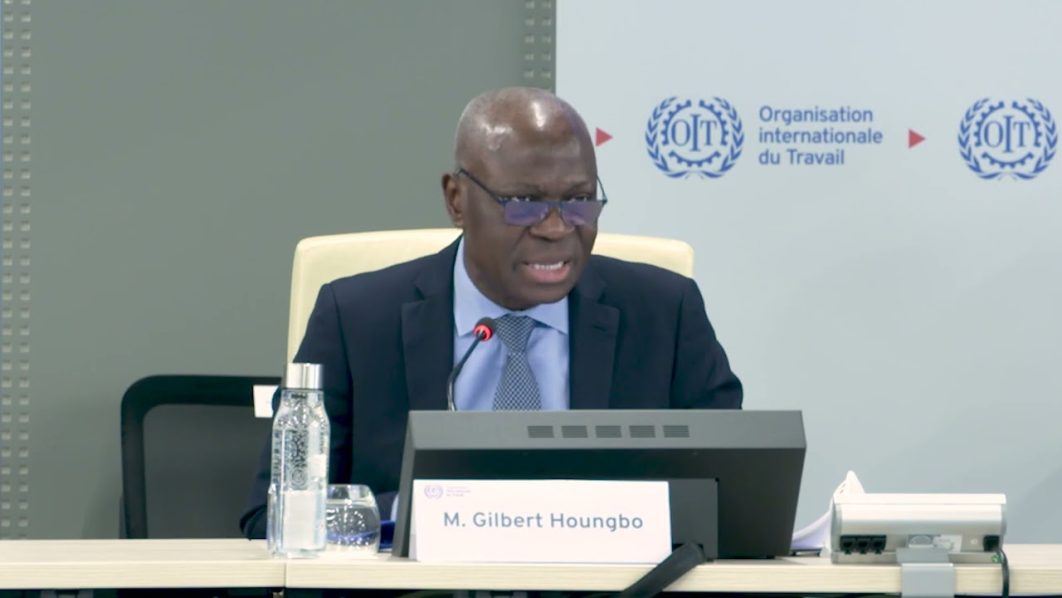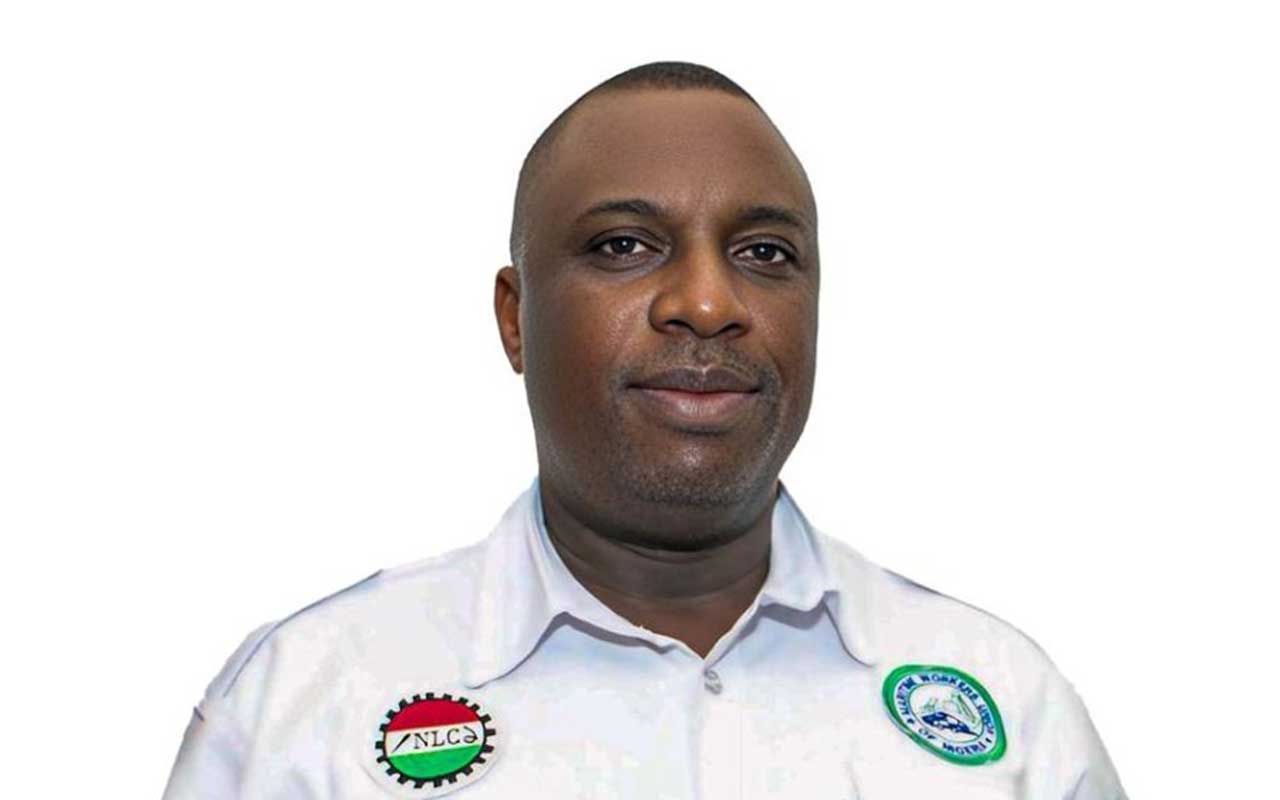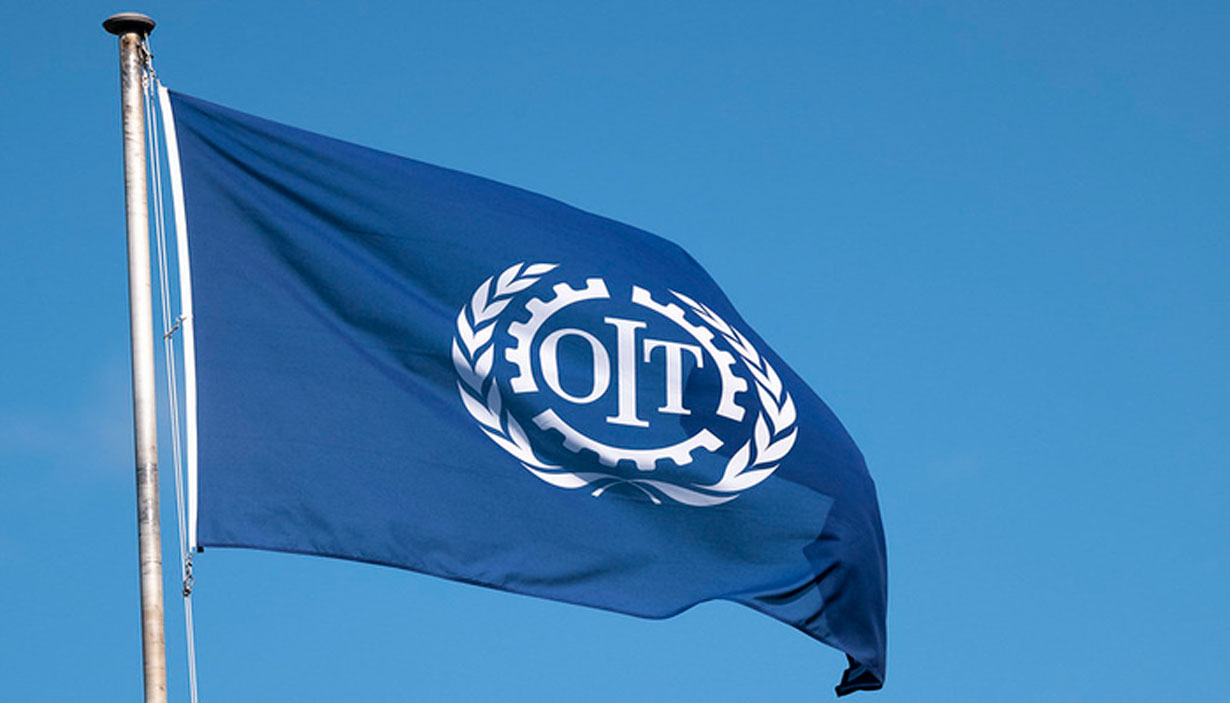
To strengthen the relationship among the tripartite bodies in Nigeria, the Director-General of the International Labour Organisation (ILO), Gilbert Houngbo, visited the country last week, COLLINS OLAYINKA reports.
The recent visit of the ILO chief, Gilbert Houngbo, to Nigeria was not his first. Still, it was the first as the substantive Director-General and the importance of the diplomatic shuttle was not lost on the government, labour and employers.
One noticeable thing about the ILO DG was the wry smile he had on his cheeks each time it was the turn of the President of the Nigeria Labour Congress (NLC), Joe Ajaero, to speak. The DG knew Ajaero would not miss an opportunity to take a jab at the government over its policies. The labour leader, of course, took full advantage of the occasion.
Even when Houngbo lauded the Federal Government for increasing the national minimum wage from N30,000 to N70,000, Ajaero quickly took the floor to provide background to the increment.
He told the visiting ILO chief that inflation at more than 30 per cent, food inflation at more than 40 per cent, devaluation of the naira by more than 100 per cent, jerk up of the Premium Motor Spirit (PMS) by more than 100 per cent, increment in electricity tariffs and increase in telecommunication tariffs by about 50 per cent have eroded the so-called national minimum wage of N70,000 was meant to achieve.
Ajaero argued that Nigerians are poorer now than ever before and that the government policies have brought more hardship to the people and further expanded the population of poor people as more Nigerians struggle to meet their basic needs.
To the NLC leader, the government has done more damage to the well-being of the people since President Bola Tinubu became the president of Nigeria. The complaints of Ajaero may not have lost on the ILO helmsman as he agreed that the minimum wage may have served its usefulness saying the time has come for the world to consider adopting a living wage, saying it unacceptable that individuals worldwide, including Nigeria, work excessive hours without being able to meet their basic needs.
Also, Nigeria has called for reforms within the Governing Body of the International Labour Organisation (ILO), to reflect the diverse social and geographical interests of all continents/constituents and to uphold the principles of fairness and equity that the organisation stands for.
The Minister of Labour and Employment, Dr Muhammad Dingyadi, made the call while receiving the Director-General of the ILO. Dingyadi described the visit of the ILO DG to Nigeria as a testament to the strong and enduring relationship between the ILO and Nigeria, assuring that the Nigerian government is keen on strengthening its partnership with the organisation, particularly in advancing social protection measures, enhancing occupational safety and health standards, and promoting gender equality in the workplace.
The minister stated that Houngbo’s visit also reaffirmed the shared commitment of ILO and Nigeria to building a future where the principles of decent work and social justice would be realities, and not just aspirations.
Dingyadi expressed the determination of the Nigerian government to deepen its collaboration with the organisation in the implementation of lLO conventions, many of which Nigeria had ratified and remained committed to upholding. He expressed optimism that the visit of the Director-General and his interaction with key stakeholders in the Nigerian labour landscape would cement the cooperation between the ILO and Nigeria, leading to impactful outcomes for the workforce and economy.
The minister said: “We are honoured to host you, and we look forward to a continued partnership in building a just and equitable world of work.” Dingyadi appreciated the continuous support and partnership of the ILO in promoting labour rights, employment creation, and workplace equity in Nigeria. He also commended the pivotal role of the United Nations agency in shaping policies that protect workers’ rights, promote safe and productive workplaces and foster industrial harmony.
The Minister recalled that since becoming a member of the ILO in 1960, Nigeria has demonstrated an unwavering commitment to the principles of the organisation and has ratified a total of 44 ILO Conventions, including nine out of ten fundamental conventions, which address core labour standards, such as the elimination of forced labour, abolition of child labour and the eradication of workplace discrimination.
Dingyadi said: “Today, we stand at a historic juncture. For the first time, the ILO is led by a Director-General of African descent. This milestone is a testament to the progress we have made collectively and reflects the growing recognition of Africa’s pivotal role in the global labour landscape.”
He expressed confidence that the discussions of the ILO DG with stakeholders during the visit would further consolidate their mutual efforts in tackling pressing labour market challenges, particularly in youth unemployment, skills development, and informal sector integration.
The minister assured that the Nigerian government remains resolute in its commitment to creating a business-friendly environment that supports sustainable enterprises, encourages decent work, and drives economic growth.
He highlighted the significance of social dialogue in ensuring industrial peace and stability and commended NECA for its proactive role in advocating for employer-employee relations and fostering a balanced approach to industrial relations.
According to him, through tripartite collaboration, government, employers, and workers can collectively build a future of work that is inclusive, resilient, and sustainable.
On her part, the Minister of State for Labour and Employment, Nkeiruka Onyejeocha, highlighted Nigeria’s focus on addressing the challenges of employment, skills development and workplace rights, in alignment with its priorities and international obligations.
Earlier, Houngbo had commended the Nigerian government for its commitment to promoting social justice, addressing labour challenges and dedication to fair labour practices as well as significant participation in ILO initiatives. He expressed confidence in the Nigerian government’s continued commitment to prioritising social justice and fairness in all its dealings with workers and employers.
Houngbo reaffirmed the ILO’s readiness to support member states like Nigeria that align with the organization’s core principles. During the visit, the ILO Nigeria Office launched the child labour website and reporting app.
At the occasion, the Federal Government appealed for collaboration by all stakeholders to eradicate the menace of child labour in Nigeria. The minister appealed in a keynote address at the launch. Dingyadi, represented by the Minister of State for Labour and Employment, Nkeiruka Onyejeocha, said the digital platform would serve as a centralized hub where cases of child labour could be reported instantly, enabling authorities and stakeholders to take immediate action.
He said the platform, developed by the Federal Ministry of Labour and Employment in collaboration with the ILO and the National Steering Committee on Child Labour (NSCCL), marks a new era of accountability, coordination, and swift intervention to end the scourge. Dingyadi described the platform as a ground-breaking initiative in the fight against child labour in Nigeria.
He said: “As you are aware, child labour is a menace that robs Nigerian children of their future. However, Nigeria has made giant strides to address this challenge by the ratification of the ILO conventions 138 and 182 which are instrumental to the elimination of child labour, development of the legal framework that addresses the issues of child labour, the National Policy and the National Action Plan on the elimination of child labour and other structures, such as the Steering Committees at the national, state, and local government levels, as well as the community monitoring committees on child labour, amongst other interventions. Despite our progress, however, millions of Nigerian children remain vulnerable to exploitation.”
According to him, the website and app would not only enhance data collection and case management but would also reinforce Nigeria’s commitment to eradicating child labour in line with Sustainable Development Goal (SDG) 8.7, which tasks nations to “take immediate and effective measures to eradicate forced labour, end modern slavery and human trafficking, and secure the prohibition of the worst forms of child labour.”
He, therefore, urged all stakeholders – government agencies, civil society, employers, workers, and the public – to utilise the platform effectively, stressing that they must work together to ensure that every Nigerian child enjoys a childhood free from exploitation and a future filled with opportunities.






